MercoPress. South Atlantic News Agency
Brazil
-
Thursday, October 23rd 2014 - 06:31 UTC
Dilma numerically ahead of Neves, in the fourth poll in three days

Incumbent President Dilma Rousseff pulled ahead again in a new poll ahead of Brazil's presidential election and she appears to be the favorite to win Sunday's runoff although the vote is still too close to call.
-
Thursday, October 23rd 2014 - 05:52 UTC
Neves wants Brazil to have the Pacific Alliance as an integration reference
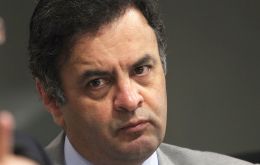
Brazilian presidential opposition candidate Aecio Neves insisted that if elected he will review Mercosur rules and make them “more flexible” so that the country can reach bilateral agreements with third parties and not limited by the consensus clause of the trade block. He also mentioned the Pacific Alliance as a pragmatic integration reference.
-
Tuesday, October 21st 2014 - 07:14 UTC
Brazil's Dilma slightly ahead show two opinion polls released on Monday
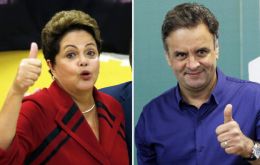
President Dilma Rousseff is gaining momentum but remains locked in a dead heat with challenger Aecio Neves ahead of Sunday's runoff to Brazil's presidential election, according to two surveys released on Monday.
-
Monday, October 20th 2014 - 08:17 UTC
Dilma admits Petrobras funds were illegally diverted to finance political parties
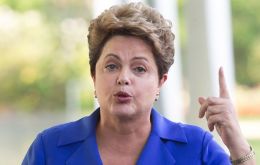
Brazilian President and candidate for reelection Dilma Rousseff admitted that funds were illegally diverted at the state-run oil firm Petrobras, allegedly to benefit political parties allied with the government, and she promised to seek reimbursement of that money.
-
Monday, October 20th 2014 - 07:25 UTC
Number of homicides in Argentina again on the rise, indicate Healthcare stats

The number of homicides per year in Argentina dropped from a peak of 4.630 back in 2002, but this did not impede that in the following decade that figure totaled, 31.992, according to official stats from the country's Healthcare ministry.
-
Friday, October 17th 2014 - 07:32 UTC
After another round of personal attacks with Neves, Rousseff is taken ill

Brazil's President Dilma Rousseff fell ill at the end of a tense and at times bitter televised debate Thursday with challenger Aecio Neves. Rousseff and Social Democrat Neves traded accusations for an hour and a half, after which she began to complain of feeling light-headed as she left the rostrum.
-
Thursday, October 16th 2014 - 07:45 UTC
Brazilian presidential runoff in a neck to neck technical tie
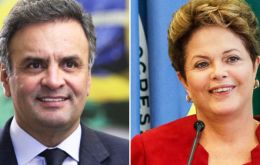
Brazilian president Dilma Rousseff and her challenger Senator Aecio Neves for the 26 October runoff, are technically tied according to the latest public opinion poll released by Datafolha, which so far has shown to be one of the most reliable pollsters.
-
Wednesday, October 15th 2014 - 23:44 UTC
Much mud-slinging but no definitive KO in Dilma/Neves first round of debates
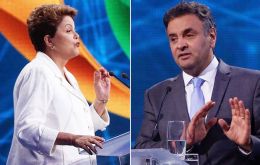
Brazilian President Dilma Rousseff and rival presidential candidate Aecio Neves have clashed over corruption and the state of the economy in the first of a series of televised debates ahead of the second round of presidential elections. 26 October.
-
Wednesday, October 15th 2014 - 23:36 UTC
Brazil will rise fuel prices to help government managed debt-laden Petrobras
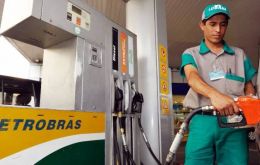
Brazil will maintain plans to raise domestic fuel prices this year, despite a sharp drop in international crude oil prices, to help debt-laden state-run oil company Petrobras, a government source said this week.
-
Wednesday, October 15th 2014 - 23:32 UTC
Petrobras sets a new oil and gas production record during September

Petrobras announced a new oil output record in Brazil, during September with an average of 2.23 million barrels of oil per day (bpd) production in the country, including in this total the fields operated by the state-owned company for its partners. The volume is 0.3% higher than breaks August record.
